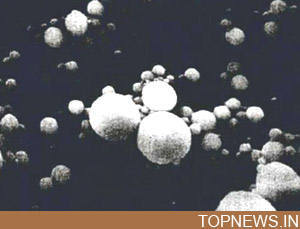Scientists discover new particle that may rewrite how matter’s created
 Washington, March 23 : Scientists working with the Fermilab atom smasher in Illinois, US, have discovered an unexpected new subatomic particle, which may break all known rules for creating matter.
Washington, March 23 : Scientists working with the Fermilab atom smasher in Illinois, US, have discovered an unexpected new subatomic particle, which may break all known rules for creating matter.
It's long been accepted that six different "flavors" of particles called quarks combine to form larger subatomic particles.
In one method, a quark pairs with one of its opposites, an antiquark, to create a type of matter called a meson. In the second method, three quarks gather to form baryons, such as protons and neutrons.
According to a report in National Geographic News, Y(4140), as the new particle has been dubbed, couldn't have formed through either of these two models for matter creation.
"The surprise about this new particle that we found is that it's not predicted by any of these rules," said Jacobo Konigsberg of the University of Florida.
"From what we know, if you tried to put a set of quarks or antiquarks together you couldn't build these particles," he added.
Y(4140) emerged as scientists sorted through the data from trillions of proton-antiproton collisions at the Department of Energy''' Fermi National Accelerator Laboratory (Fermilab) in Batavia, Illinois.
The discovery is one of several recent finds that have physicists rethinking the rules for how matter is made.
"Apparently there are a lot more ways of putting things together than we thought," said Syracuse University physicist Sheldon Stone, who runs experiments based on data from the Large Hadron Collider in Europe.
"Y(4140) is part of this whole class of objects which people don't really understand," Stone added.
According to Fermilab's Rob Roser, Y(4140) was found only about 20 times in billions and billions of collisions.
But with plans to triple Fermilab's massive collision dataset over the next few years, more exciting discoveries should emerge.
"We should learn more about the properties of this particle, and we also hope to find many new things," Roser said. (ANI)